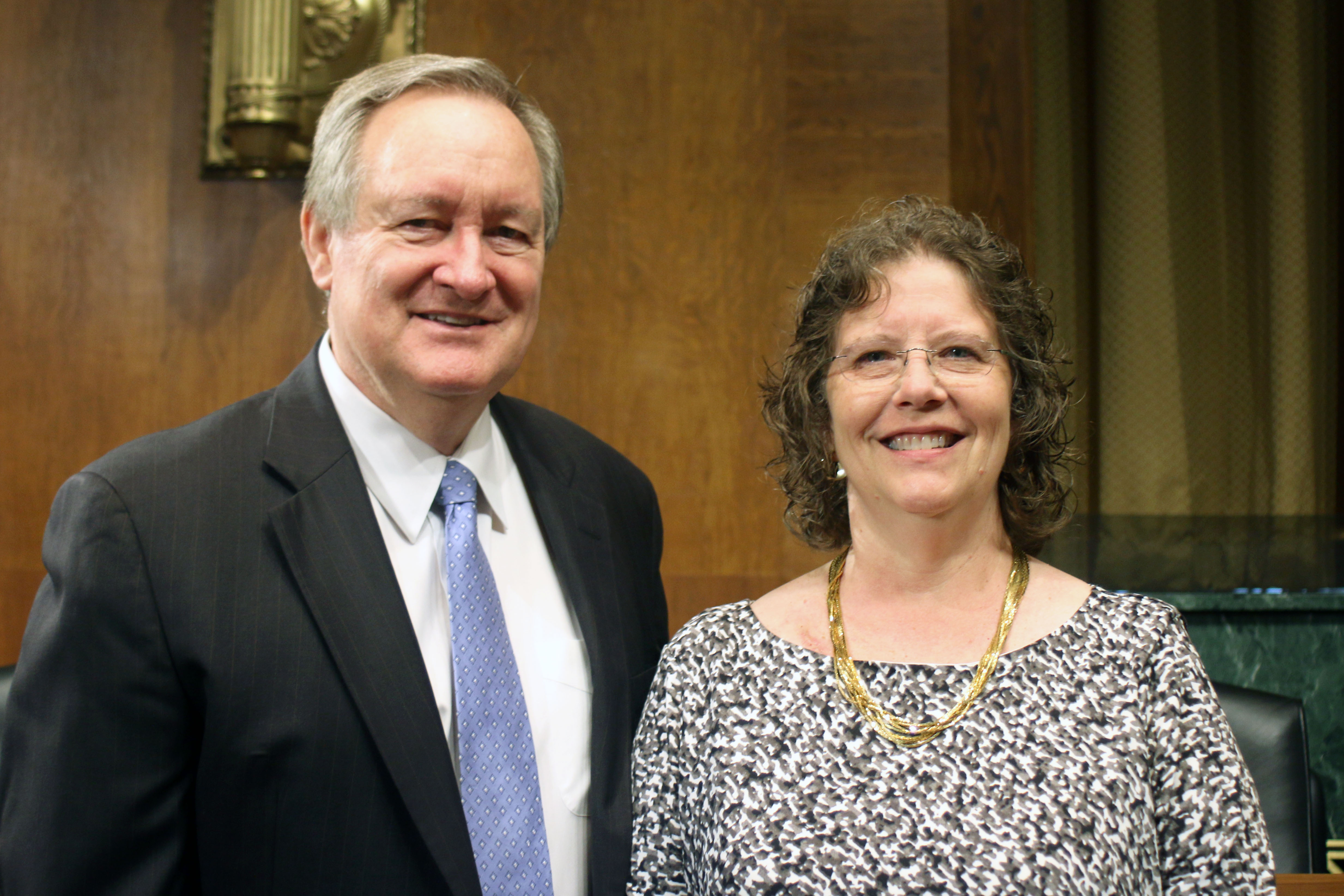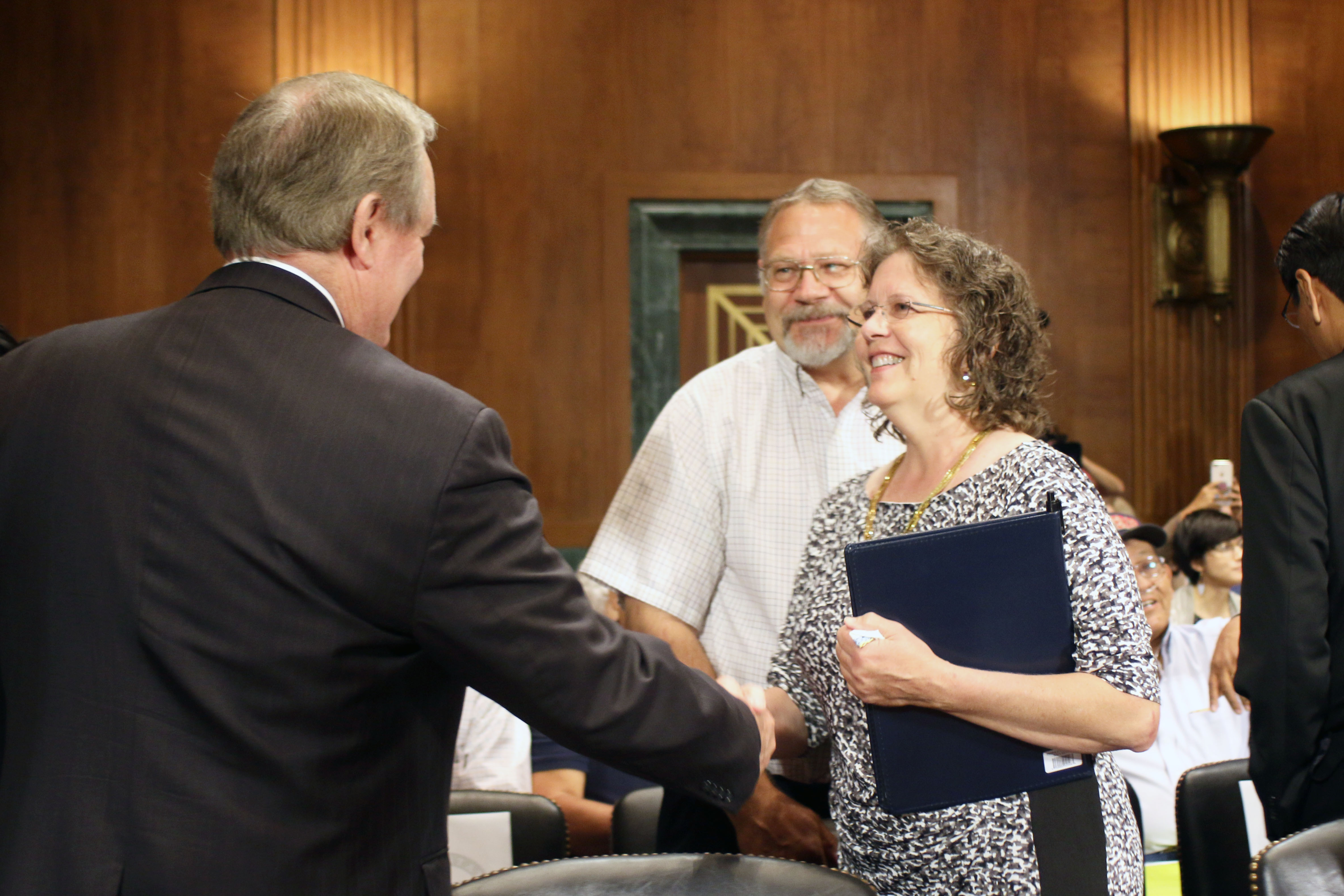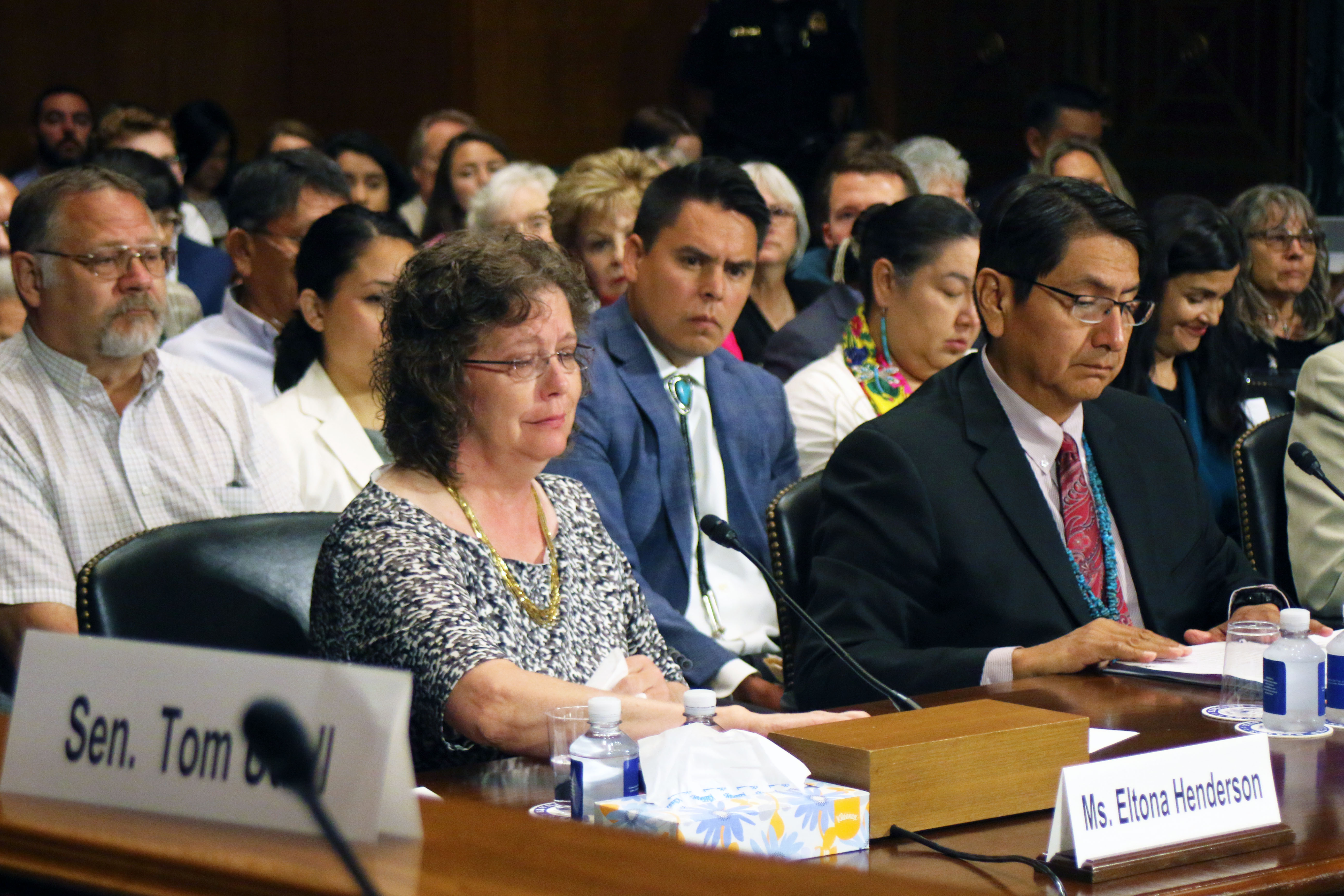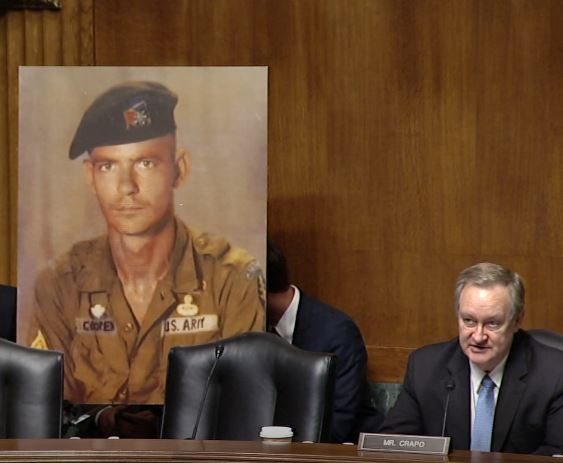Hearing Brings Hope, Emotion, Facts for Downwinders
Emmett advocate notes inequities in treatment, high cancer rates noted
Washington, D.C. – A sense of inequity and urgency dominated the testimony of witnesses today during a Senate Judiciary Committee hearing on expanding government compensation for victims of cancer known as “downwinders.” S. 197, the Radiation Exposure Compensation Act (RECA) Amendments of 2017, was the subject of the hearing.
The bill would increase compensation and widen eligibility requirements for victims who have been denied government help for more than fifty years, relating to cancer caused by radioactive fallout from nuclear bomb tests in the 1950s and 1960s. Idaho, Arizona, Colorado, Montana, New Mexico, Nevada, Utah and Guam would be added to existing areas where victims can apply for compensation under the federal RECA program. At present, only residents of certain counties in Utah, Nevada and Arizona are eligible to apply for benefits, something witnesses repeatedly noted during their testimony.
Idaho Senator Mike Crapo has introduced RECA expansion legislation dating back to 2005, and chaired today’s hearing, accompanied by Ranking Member Senator Cory Booker (D-New Jersey). Booker announced during the hearing he was signing on as a co-sponsor of the legislation.
“At present, Idahoans, New Mexicans, residents of Guam and many other innocent victims, remain left out of the program,” Crapo said in his opening opening statement at the hearing. “Tragically, for some it is already too late.” Crapo recalled an emotional meeting with Idahoan Sheri Garmon in an Emmett city park. She became a cancer victim, along with other members of her family, when fallout some described as frost fell to the ground there following arms testing in Nevada. Crapo also noted the story of Sergeant Paul Cooper, who died at the VA Hospital in Boise after observing a nuclear bomb blast in the field. “Sergeant Cooper served three tours of duty in Vietnam and put his life on the line for our country. But following orders, he participated in military maneuvers in which he and more than 2,000 other troops marched through radioactive dust near ground zero of a 1957 test, code-named “Smoky,” minutes after the explosion, in order to test the group’s reactions to nuclear fire.”
Tona Henderson, who heads Idaho Downwinders in Emmett, noted in her testimony that her birthplace of Gem County, Idaho, received the third-highest amount of fallout in the nation according to a National Cancer Institute study of radiation exposure due to weapons testing. “I started writing down the names of people who I have known who have had cancer in Gem County to date. I have 1060 names. How many of you know that many friends and family that have had cancer? Some entire families have been wiped out by cancer, where there was no cancer before the 1950s.”
The inequity that left some Americans eligible for help and others not was noted by Tina Cordova, who brought members of the Tularosa Basin Downwinders Consortium in Albuquerque, New Mexico to the hearing. “Those of us present, along with all the people we present, are hoping and praying that you hear us with open ears, open hearts, and open minds. I ask that you put yourself in our shoes, that you might consider what it’s like to walk with us just one day. That you might imagine what it’s like to go with us to a funeral, or to a chemo infusion, or for an MRI, or to receive the horrible news that the cancer you’ve been fighting is back. In our communities we don’t wonder if we’re going to get cancer, we only wonder when.”
Today’s hearing was the first Senate hearing a RECA expansion bill has received in more than a decade, and Crapo thanked Committee Chairman Chuck Grassley (R-Iowa) for the opportunity. Several committee members attended the hearing, both Republicans and Democrats, giving the hearing a bipartisan tone of support. Senator Tom Udall (D-New Mexico), one of the bill’s co-sponsors, asked the Committee to advance the bill, calling the situation a “grave injustice” he has dealt with since 1977.
One downwinder not at the hearing, Idahoan J. Truman of Downwinders,org., said, “This morning's hearing marked the first significant hopefully effort to address the current legacy this nation's still suffering, and dying downwinders has been addressed in DC. Time has clearly shown the extent the people downwind of past U.S. nuclear weapons tests, and those mining and processing the uranium to power those weapons, have paid with their health and far too often their lives. We thank the senators, staff, for their persistence in giving all us hope.”
Video excerpts from the hearing are enclosed or can be viewed here. The entire hearing can be viewed here online. Additional photos from today’s hearing are included.

Senator Crapo and Tona Henderson of Emmett before the start of Wednesday’s hearing.

Senator Crapo greets Tona Henderson of Emmett.

Tona Henderson of Emmett delivered an impassioned statement that drew applause from the audience.

In his opening statement, Crapo spoke about Sgt. Paul Cooper, an Idaho downwinder who died at the Boise VA at age 44.
# # #
